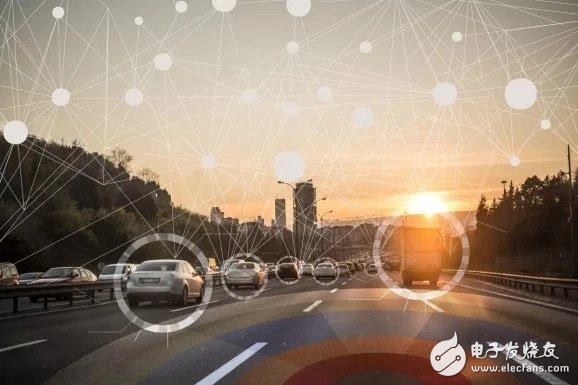It feels like the plot in science fiction: autonomous cars, passengers rarely need to operate, or even without the need to operate, the car can run automatically.
But this scene is not far from us.
Automated driving technology has become a reality, and it is progressing every day due to machine learning technology and user input technology.
We have not completely abandoned the driver, but this moment may only come earlier, not later.
Experts predict that by 2040, autonomous vehicles will become the norm.
Some people, such as Tesla's Elon Musk, believe that human-powered cars can be completely replaced.
The automotive industry is undergoing major changes, and the insurance industry will also undergo major changes.
The emergence of autonomous vehicles makes the problems faced by insurers more complicated, and it takes time to answer these questions.
However, the experts are already weighing. Below are their views on how autonomous vehicles and artificial intelligence technologies will affect car insurance.

The car manufacturer will take responsibility
When an accident occurs, no one is involved, then who is responsible for compensation - car manufacturers? This seems to be the current consensus.
It is understandable if you have a hard time believing that automakers will cover insurance costs in the event of an accident. But this precedent has been established.
Google, Volvo and Mercedes-Benz have taken responsibility for the failure of the car's automatic driving system in the event of an accident.
Tesla has introduced an insurance plan to buyers of Tesla Motors, which further drives this trend. The release of this insurance program shows the company's high level of confidence in its technology.
The current data even shows that preventable human error accounts for as much as 94% of all traffic accident causes.
However, don't expect this process to go smoothly.
Most experts believe that there will be many lawsuits before there are typical precedents and the dust settles.
It may also be necessary to have a widely tracked sensor on the car to determine if anyone or an artificial intelligence driving system made a mistake in the accident before the car manufacturer was fully responsible for the crash.
As the number of accidents decreases, the premium will drop.
As autonomous vehicles become the new normal, experts predict that accidents will diminish dramatically over time.
As drivers and driverless cars start to drive together on the road, there may be some problems at first, because neither humans nor artificial intelligence drivers can accurately predict what will happen at this moment.
But in the end, the accident may show a downward trend. This is a good thing, because in the United States alone, 37,000 people die each year from car accidents.
But we don't have to wait until the fully automatic car is on the road to see the accident reduction. Advanced driver assistance systems (ADAS) are becoming more common and they show significant potential to reduce traffic accidents.
As technology becomes cheaper and older cars are replaced, ADAS will become more and more common.
By 2025, as many as 40% of cars may have lane change warnings and forward collision prevention systems.
Many insurers have already offered premium discounts for these features, but as security increases, insurers will need to lower their premiums or face the risk of being marginalized by competitors.
More and more drivers are buying less or not buying insurance, and the insurance industry may be in trouble.
According to current estimates, at some point in the 1940s, drivers realized that they no longer need to purchase personal accident insurance.
While it is beneficial to always buy full insurance, society may end up in a situation where everyone buys insurance within the minimum legal protection that is mandated.
Some industry insiders even predict that states will remove mandatory coverage regulations as roads become more secure.
If the risk of an accident is low and your state regulations do not require you to purchase insurance, would you still buy insurance?
As artificial intelligence cars become more prevalent, insurers will need to reassess how this technology will affect their industry.
But at the moment, this does not mean that the industry will completely die out. None of the above predictions have taken into account how the industry has evolved.
Other forms of artificial intelligence technology are actually useful to insurance companies and can be used to adjust the data they collect.
This new information can help them better increase their premiums and provide customers with more useful services instead of dying out.
The industry has plenty of time to research and make the corresponding changes.
In the next 10 to 15 years, insurers will transform their business models to accommodate the upcoming changes.
Whether you believe that the ultimate human driver may be replaced, become illegal or not universal, there are certainly many changes in our road regulations and insurance industry.
Everyone wants to see this miraculous change process, whether it is a consumer or an insurance company.
Draw-wire sensors of the wire sensor series measure with high linearity across the entire measuring range and are used for distance and position measurements of 100mm up to 20,000mm. Draw-wire sensors from LANDER are ideal for integration and subsequent assembly in serial OEM applications, e.g., in medical devices, lifts, conveyors and automotive engineering.
Linear Encoder,Digital Linear Encoder,Draw Wire Sensor,1500Mm Linear Encoder
Jilin Lander Intelligent Technology Co., Ltd , https://www.landerintelligent.com